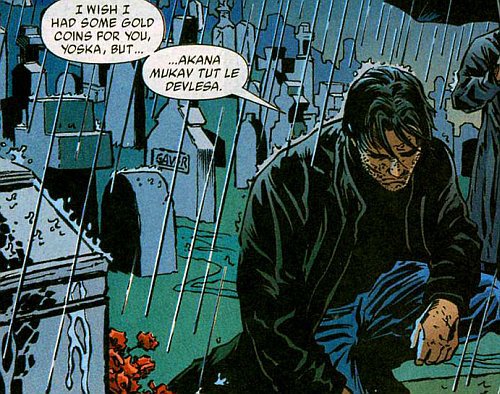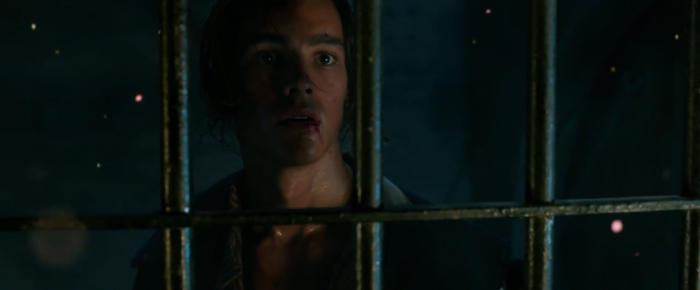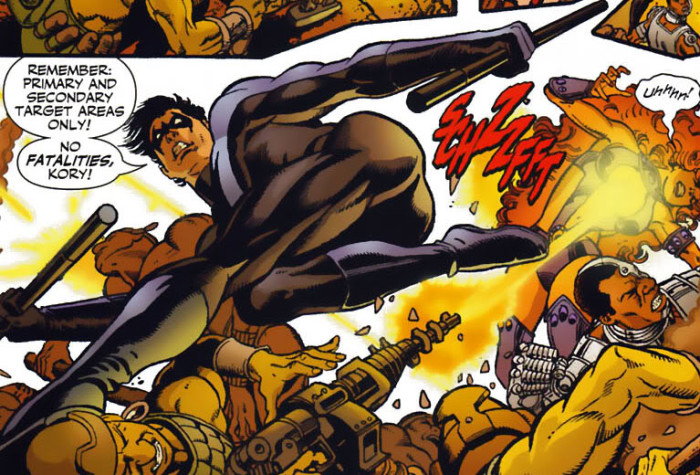Casting Brenton Thwaites As Dick Grayson Is A Tragic Missed Opportunity
(Welcome to The Soapbox, the space where we get loud, feisty, political, and opinionated about anything and everything. In this edition: the Titans TV series casting of Brenton Thwaites goes against the character of Dick Grayson.)
First things first, Dick Grayson is my favorite DC Comics character. So I may be a little protective of the former Robin as he makes his move to the live action realm, subjecting him to the limits of reality.
And I realize there will be limits to how the actor playing him will fulfill my expectations of Dick Grayson: as a hero with a diverse background and a sex symbol who eschews the hypermasculine stylings of most DC Comics superheroes. You may scoff, but that is what the Robin-turned-Nightwing hero has been known to be in the comics and his animated iterations. And this is why Brenton Thwaites — who joins the long line of generic, charmless actors who Hollywood keeps trying to push on audiences as our "next big movie star" — is so wrong for the job of bringing Dick Grayson to life in the Titans live-action TV series.
Executive producer and brain behind the DC Comics TV properties Greg Berlanti has shown incredible shrewdness when it came to color-blind casting for his series like Arrow, The Flash, Supergirl, and Legends of Tomorrow, even stressing diversity with the upcoming Titans series, which will premiere the DC Comics-branded digital platform.
While it's satisfying to see Starfire to be cast with a black actress, I couldn't help but anticipate the leading man of the series to join her by being played by a person of color. And in the case of Dick Grayson it's not just a case of color-blind casting: diversity is in his history.
Dick Grayson's Romani History
When Dick Grayson first swung onto the comics scene as Batman's upstart sidekick Robin, he didn't have a clear-cut ethnicity, so it was assumed that he was another white male character. Indeed over the years, he's been played on screen exclusively by white actors, from Burt Ward in the classic campy '60s Batman series to Chris O'Donnell in the Batman Forever and Batman and Robin movies. But an integral part of Dick Grayson's identity in the comics is his Romani identity.
Dick's Romani roots weren't introduced until Devin Grayson's Gotham Knights run in the '90s and early 2000s. In 2001, his Romani heritage was finally made canon: Dick learned that he was part Romani from his father's side. While some fans wondered if this was a "retcon" of his character, Grayson responded (via Nerds of Color, which has an excellent deep dive into Dick's Romani roots):
And I don't know that I'd say having a Romani superhero is important as much as I'd say that not assuming that all superheroes are white Europeans is important [...] I didn't change his ethnicity from one thing to another, he had no ethnicity. The truth is, we never talk about that stuff, we just make assumptions, and in this case those assumptions are based on a really boring, banal, and in many ways harmful representation of America.
References to Dick's Romani heritage have remained consistent through later Batman and Nightwing runs, although they were often used in a derogatory manner. Regardless, DC Comics has acknowledged that Dick's Romani heritage is now a pivotal part of his character.
Yes. And yes. That heritage is essential to who Dick is. @TomKingTK #GraysonChat https://t.co/XisGkAsQgZ
— DC (@DCOfficial) June 19, 2015
There isn't much understanding of what his newfound Romani heritage means for the character in the comics, but in spite of that, this gives live-action iterations a chance to highlight actors of color outside of the generic white male action star.
Hollywood's Long Search for the Next Movie Star Without Star Power
Now onto Brenton Thwaites, said generic white male action star. I have a particular grudge against him not because of his acting abilities — though they're nothing to write home about — but because of what he is emblematic of: Hollywood's fixation on finding the next leading man that fits within its narrow-minded view of what a movie star should look like. That is, white, male, with some definition in their cheekbones. Then said actors will be pushed into every blockbuster and prestigious role, regardless of their talent or charisma. You know I'm speaking of: Taylor Kitsch's, Liam Hemsworth, Sam Worthington's, Theo James. The kind of actor who you will see on People's "Sexiest Man Alive" lists, only to promptly forget what they look like when you turn the page.
Thwaites is the latest culprit (victim?) of this phenomenon, starring in abominal adaptation of The Giver before going on to headline big budget blockbusters like Gods of Egypt, Pirates of the Caribbean, and Maleficent. Remember him in these movies? Me neither.
It's because he has all the physical attributes that Hollywood determines makes for the next Tom Cruise — despite few actors being able to replicate Cruise's particular brand of unhinged movie star charisma. And for some reason, it's rarely the actors of color who get this boost by Hollywood to be the next movie star. No, there's a particular reason (*cough* it's racism), and it's the reason why we probably won't get an actor of color to play Dick Grayson in the upcoming Nightwing DCEU film, either. No one is looking for the next Romani movie star.
Dick Grayson as DC Comics' First Male Sex Symbol
Okay, this one is just for me — and the legions of fangirls who objectify Dick Grayson's pert butt.
Yell at me all you want for lauding the objectification of a superhero character when I, as your resident SJW, have frequently criticized the slobbering of fanboys and male directors over women's bodies in movies. But Dick Grayson's heartthrob status is as an important part of his identity as his Romani heritage. Perhaps even more so.
Yes, when Dick Grayson's character was first created by Bob Kane, Bill Finger, and Jerry Robinson as a cheery pre-teen boy in 1940, he was never intended to be DC's most prolific male sex symbol. But that's what he became, by virtue of being the first comic book character to actually age. Unlike most superheroes who stay the same age throughout their 50 years-plus runs, Dick Grayson has gone from being a child to a full-grown man. His many iterations — Robin, Nightwing, Detective Grayson, Agent 52 — are all signs of that, as well as stepping stones in his transformation from boy-next-door to sex symbol. It was the frequent romantic interest of various female heroes — to stave off Comics Code accusations of homoeroticism in Batman — as well as his aging out of the Robin costume into the sleek, well-fitted Nightwing suit that helped Dick become the pinup that he is today. Women Write About Comics has a great retrospective about Dick's long history of being ogled by other female characters, which led to him being ogled by female readers.
Why did Dick Grayson achieve this status instead of other superheroes like Batman or Superman, who are more in line with the hypermasculine ideals of comic book characters? That's precisely why: Batman and Superman presented a male fantasy, one of brute strength and rugged individualism, while Dick — suave, personable, and in a streamlined suit that showed off a slimmer build — appealed to female fantasy. When comic book readers are bombarded with scantily clad female heroes in questionable poses, here was Dick Grayson leveling the playing field, posing in just as sexually suggestive positions. His slim figure, with a particularly memorable derrierre, became a defining factor in how he was written in the '90s and 2000s, culminating in the most female gaze-y comic of all time, Grayson, where Dick spent half his time shirtless and other characters commented on his butt. It was a great time.
Now Thwaites is a slim guy, but doesn't particularly fit the curvy figure that Dick has become known for in recent comics. But like I said earlier, I have to rein in my expectations per reality. And Dick Grayson's butt may not exist in this reality.
The Titans series, executive produced by Berlanti, Akiva Goldsman, Geoff Johns and Sarah Schechter will premiere on Warner Bros. and DC's first streaming service in 2018.



